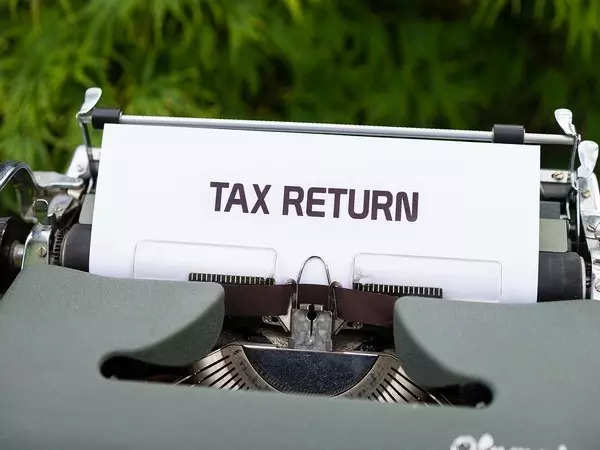
METRO Manila has been rated the global leader in hours wasted in traffic — the worst among 387 metropolitan areas in the world — based on data from navigation software company Tomtom. I was hoping that this unflattering recognition would trigger some soul-searching on the part of the Metropolitan Manila Development Authority (MMDA) as to where its strategy was failing and then change course.
In the most livable cities and countries, the winning strategy is to make walking, cycling and public transportation safe and attractive travel options so that even those with cars leave these at home. When road space is prioritized for the most efficient and least damaging travel modes, people are encouraged to shift, alleviating traffic and freeing up road space for those who have no option except to use a private motor vehicle. Unfortunately, the MMDA's policies and actions have been largely in the opposite direction.
For decades, the MMDA has chosen to prioritize four-wheeled motor vehicles on major roads so that they can achieve higher travel speeds. The mistaken presumption is that roads should be reserved for private motor vehicles while the needs of all other road users are secondary or unimportant. Despite a National Transport Policy and Philippine Development Plan that requires all public agencies to accord the highest priority to public transport, pedestrians and cyclists, the MMDA has retained its costly and inefficient prioritization of private motor vehicles. Worse, the MMDA pushes its 17 local government units (LGUs) to adopt this damaging approach to managing roads.
With vehicle speed as the main objective, sidewalks are narrowed or removed in order to create more and wider road lanes. Pedestrian crossings are erased and replaced by elevated footbridges so that motor vehicles are not interrupted or slowed down. Dedicated lanes for bicycles or public transportation are rejected or resisted because lanes for private motor vehicles will be reduced. There is no concern for the welfare of pedestrians who have to walk longer distances. There is no concern for the safety of cyclists who are forced to mix in the same space as motor vehicles. There is no concern for those who have difficulty climbing stairs — the elderly, persons with disability, people who carry heavy packages.
The natural consequence of this pro-car bias is to encourage people to use private motor vehicles. The implicit message is that you should be in a car to travel with dignity and ease around the city. Everyone else does not matter. With the phenomenon of induced demand, the result is more cars and more traffic, noise, heat, pollution and climate change. Metro Manila's crown as the world's traffic capital is ample evidence that the MMDA's approach to alleviating road congestion has failed and should be revised.
The MMDA's vehicle-centric approach is not only unsound; it is also grossly unjust. In Greater Manila, only 11.5 percent of households are car owners. In order to serve the interests of the small minority of Filipinos in cars, the welfare of the majority — including many who belong to disadvantaged and vulnerable groups — is sacrificed. There are several recent examples of this insensitive treatment of Filipinos without cars.
Last year, the MMDA blocked the implementation of a fully funded Department of Transportation project to improve the bike lane and pedestrian walkway along EDSA, with the excuse that the project would affect the luxury car dealerships along the highway. In what could be considered not only poor judgment but likely highly irregular, the MMDA chose to obstruct a publicly funded project that would have provided a safe and attractive pathway for pedestrians and cyclists on EDSA — potentially saving lives.
In August 2023, the MMDA advised the City of San Juan to dismantle a protected bike lane along Ortigas Avenue, arguing that the bike lane bollards contributed to congestion and reduced road capacity. This decision endangers cyclists traveling on Ortigas without achieving any meaningful improvement in road congestion. If the MMDA is comfortable applying this car-centric logic to Ortigas, can we expect MMDA to dismantle other protected bike lanes in Metro Manila, exposing cyclists to greater risks of injury or death from collisions with motor vehicles?
Recently, the MMDA announced a ban on electric bicycles and electric tricycles on national roads, arguing that these modes of transportation were unsafe. What it failed to mention was that for every e-bike crash in Metro Manila in 2022, there were 134 road crashes involving cars. If cars are the main cause of road crashes, why is the MMDA focusing on removing e-bikes from our most important roads, rendering them useless as a conventional mode of travel?
E-bikes and e-trikes offer a low-cost, environment-friendly, and space-efficient option for travel; for this reason, they are today the fastest growing category of electric vehicle in the world. They have huge potential for replacing many cars and motorcycles in all our cities, promoting healthier lifestyles and reducing traffic, heat, noise, pollution, and climate change. A forward-looking, inclusive, environmentally-conscious MMDA would have worked on reconfiguring major roads for the safe use of e-bikes and e-trikes (through e.g., lower speed limits, traffic calming infrastructure, protected lanes for light electric vehicles and bicycles, etc.) instead of banning them.
The MMDA's outdated and destructive pro-car policies are clearly inconsistent with the Marcos administration's commitment to climate action, sound environmental management, green corridors, safe walkways and bikeways, and sustainable, people-centered development, as exemplified by the "Pasig Bigyang Buhay Muli" project to transform the Pasig River. For a livable Metro Manila, we need a recast MMDA that will serve the mobility needs of all road users, value lives and safety over the speed of motor vehicles, and champion the welfare of the carless majority. A change of mindset is required.
Robert Y. Siy is a development economist, city and regional planner, and public transport advocate. He is a co-convenor of the Move As One Coalition. He can be reached at mobilitymatters.ph@yahoo.com or followed on Twitter at @RobertRsiy.
Read The Rest at :




